1. AI - revolutionizing the technology industry
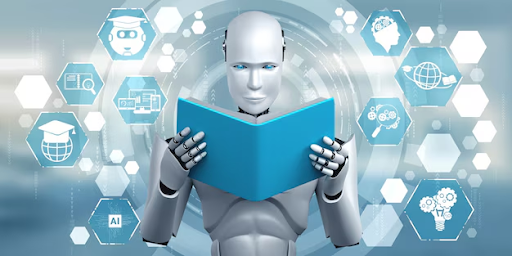
In the past year, Generative AI, also known as AI creation, has demonstrated its ability to generate a wide range of creative content, from images and music to text. For example, the rapid development of tools like ChatGPT or Gemini in a short period of time. The application of this technology spans from art and design to many other industries.
The year 2025 marks the strong rise of Agentive AI – also known as AI agents, intelligent systems capable of operating independently, making decisions, and performing complex tasks without direct human intervention. Unlike traditional virtual assistants that only respond to basic commands, Agentive AI possesses the ability to observe, plan, and learn from the surrounding environment. They are widely applied in many fields, from automating business management and supporting healthcare to operating smart homes.
For example, an AI agent in the business field can independently conduct market research, propose sales strategies, and even implement marketing campaigns based on real data. However, this rapid development also poses significant challenges regarding transparency, safety, and ethics, requiring organizations to establish strict management frameworks to optimize the benefits that this technology brings.
Recent reports show the remarkable growth of AI in businesses. More than 80% of organizations have considered AI as a core technology, and this number continues to rise. AI is not just a supportive tool; it has also become a reliable partner, helping humans unleash their creative potential and focus on more human-centric tasks.
In the near future, AI will not only become smarter but also more relatable to humans. We are entering an era where AI can understand and respond to human emotions. The combination of machine intelligence and human emotions will create entirely new experiences and open up limitless possibilities.
With its immense growth potential, the global AI market is expected to achieve impressive growth in the coming years. This shows that AI is not just a temporary trend, but a revolution in progress that will reshape the future of humanity.
2. Connecting everything: IOE opens a new era
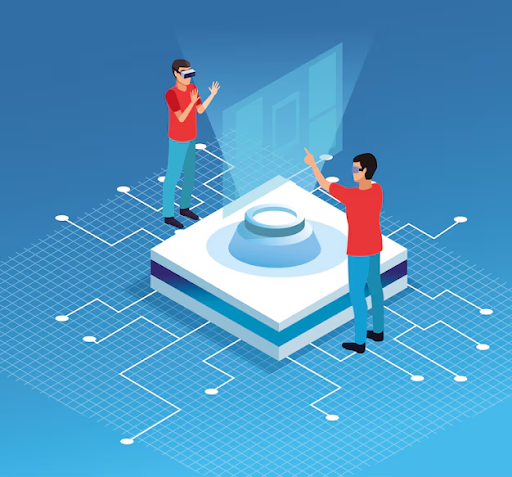
In 2025, the Internet of Everything (IoE) is becoming a significant advancement compared to the Internet of Things (IoT) that we are familiar with.
This is not just about increasing the number of devices, but also opening up limitless application possibilities, from optimizing production processes, enhancing service quality, to building smart cities and creating entirely new living experiences.
According to Cisco's report, IoE has enormous economic potential, with an estimated market value of over 19 trillion US dollars. This shows that IoE is not just a technology trend, but also a driving force for global economic growth.
Understanding the difference between IoE and IoT is extremely important to grasp the future development trends of technology. IoE opens a new era, where everything is connected and interacts with each other, creating a smarter and more convenient world.
3. Smart robot
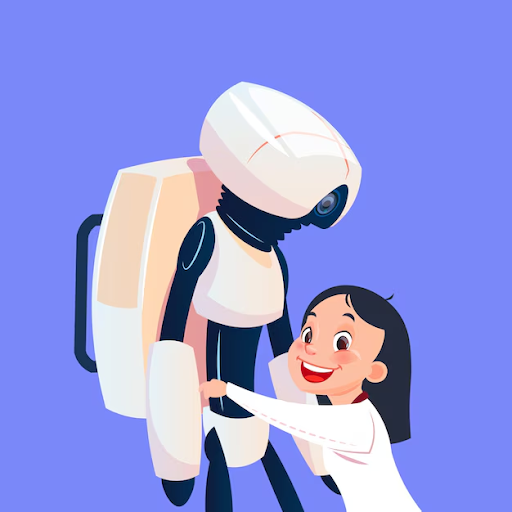
The rapid development of technology is bringing us closer to a future where humans and robots coexist. According to forecasts, the humanoid robot market will reach an impressive figure of 10 billion US dollars by 2030, indicating a promising future just 5 years away from us.
The popularity of humanoid robots is expected to spread rapidly, penetrating both households and workplaces this year. With their ability to learn and adapt continuously, these robots promise to become invaluable companions, supporting humans in every aspect of life.
China, with its status as an industrial powerhouse, is expected to take the lead in 2025. However, the United States and Europe are also not to be underestimated and are ready to join the game in 2026. The fierce competition between countries will drive the rapid development of robot technology, bringing us increasingly intelligent and versatile products.
4. Self-driving car technology
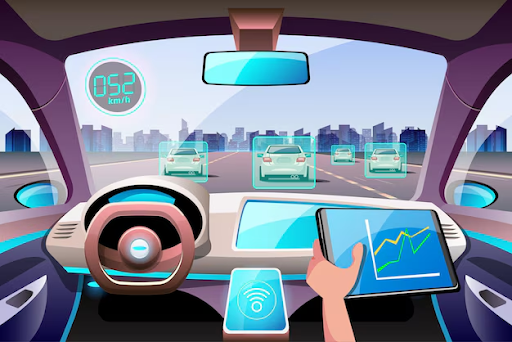
The 21st-century transportation revolution is approaching with the boom of self-driving technology. Thanks to the support of advanced technologies such as artificial intelligence, sensors, and radar, self-driving cars can now automatically control themselves, recognize their surroundings, and make decisions. With features such as automatic emergency braking, lane keeping assist, and automatic parking, self-driving cars promise to reduce traffic accidents and provide a safer driving experience.
The self-driving car market is witnessing remarkable growth, and China, with strong government support, is becoming one of the leading countries in this field. The widespread deployment of self-driving taxis in major cities will not only create convenience for the public but also help reduce traffic congestion and environmental pollution.
However, along with the great benefits, self-driving car technology also poses many technical, legal, and ethical challenges. How to ensure the safety of pedestrians and other road users? Who will be responsible in the event of an accident? These are the questions that need to be answered in the near future.
Although there are still many issues to be resolved, it cannot be denied that self-driving technology is reshaping the future of the transportation industry. With its immense potential, self-driving cars promise to bring a more convenient, safer, and more sustainable life for people.
5. Biotechnology
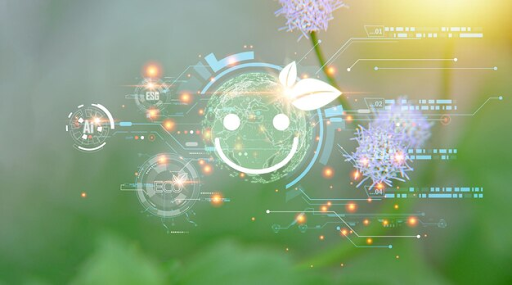
Biotechnology is undergoing a period of explosive development, and 2025 marks significant advancements in this field.
In 2025, CRISPR-Cas9 technology created a revolution in the field of gene editing, promising breakthroughs in the treatment of genetic diseases. The ability to precisely edit mutated genes opens up hope for curing diseases such as cancer, cardiovascular diseases, and rare genetic disorders. However, this technology also raises many ethical questions, especially when applied to human gene editing. The lack of clear regulations regarding the application of this technology is also a significant challenge.
Additionally, there are other technologies that serve our lives, such as 3D bioprinting or microorganisms, which are ushering in a new era in regenerative medicine. This technology has the potential to revolutionize the treatment of burns, injuries, and degenerative diseases. However, creating complex biological structures requires advanced technology and suitable biomaterials.
Biotechnology is developing at a breakneck pace, bringing significant breakthroughs in medicine, agriculture, and industry. However, along with the opportunities, biotechnology also poses many challenges regarding ethics, legality, and safety.
6. Quantum computing
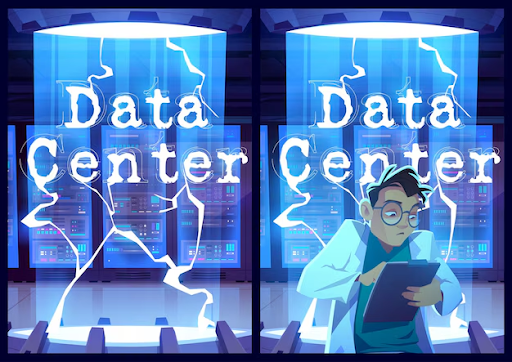
Quantum computing is a promising field of research, promising to bring significant breakthroughs in many areas of life. Unlike classical computers that use bits (0 or 1), quantum computers use qubits, which can exist in multiple states simultaneously thanks to the phenomena of superposition and quantum entanglement. This allows quantum computers to perform many calculations simultaneously, solving complex problems that classical computers would take thousands of years to solve.
Many leading companies and laboratories have announced the goal of achieving quantum computers with over 1000 qubits by 2025. The larger the number of qubits, the more capable quantum computers are of solving more complex problems.
Quantum computing promises to bring significant breakthroughs in many fields, including:
- Pharmaceutical industry: Searching for and developing new, more effective and faster drugs, while also designing new materials for the medical field.
- Finance sector: Improving risk management, optimizing investment portfolios, thereby helping investors make more accurate decisions.
- Materials science: Creating new materials with special properties, opening up new applications in various fields, from industry to aerospace.
- Cryptography: Both a challenge and an opportunity. Quantum computers have the ability to break current encryption systems, while also being able to create more secure and safer encryption systems.
7. Metaverse and Virtual/Augmented Reality

The Metaverse is a 3D virtual space where users can interact with each other and virtual objects in a realistic manner. In 2025, the Metaverse had moved past the initial stage and began witnessing the participation of many major companies, from tech firms to fashion brands. The Metaverse is applied in many fields, from entertainment and education to e-commerce. According to an IDC study, it is predicted that by 2025, virtual reality devices will reach 28.7 million units, indicating a growing demand for virtual reality experiences.
XR is a general term referring to technologies that enable interaction between the real world and the virtual world, including virtual reality (VR), augmented reality (AR), and mixed reality (MR). XR is applied in many fields, from healthcare (remote surgery, training), education (realistic simulations) to entertainment (games, online events). XR and the Metaverse are increasingly converging, creating more immersive and interactive experiences. According to another report, the AR market is expected to reach a value of 97.76 billion USD by 202
Metaverse and XR are changing the way we interact with the world around us. With the rapid development of technology, we can expect to see more innovative applications of the Metaverse and XR in the future.
8. Green Technology - Towards Sustainable Development
In the context of climate change and increasingly depleted natural resources, green technology is becoming one of the key technology trends of 2025. This is not only a solution aimed at minimizing negative environmental impacts but also opens up opportunities to promote sustainable development globally. Green technology is understood as the application of advanced technological solutions to save energy, reduce emissions, and use resources more efficiently.
- Renewable energy: The development of energy storage batteries and solar and wind energy systems will promote the use of clean energy.
- Recycling technology: New technologies will help recycle waste more efficiently, reducing the amount of waste released into the environment.
- Sustainable construction: Smart buildings designed to save energy and use environmentally friendly materials will become popular.
In the coming years, green technology will play an increasingly important role in ensuring sustainable development. Countries, organizations, and individuals need to closely cooperate to promote the application of this technology.
9. Conclusion
2025 is a new chapter in the book of technology, where artificial intelligence, self-driving cars, and green solutions shine brightly. Each step forward in technology is not just an achievement but also a seed sown for the future. However, alongside the opportunities, we also need to remain vigilant in facing the challenges. The creative and responsible application of technology is the key to building a sustainable future where people and the environment coexist harmoniously.